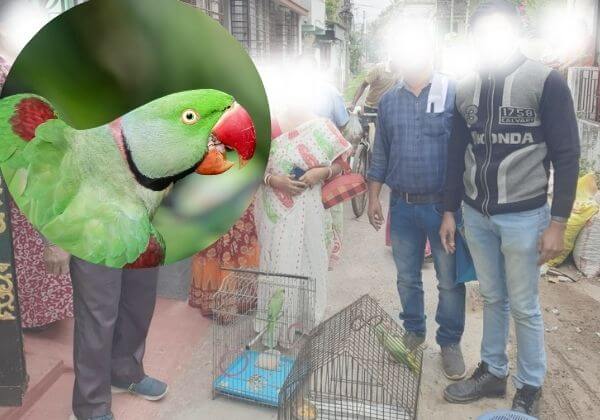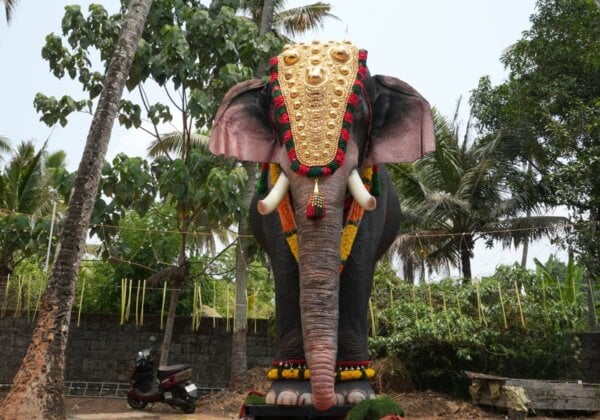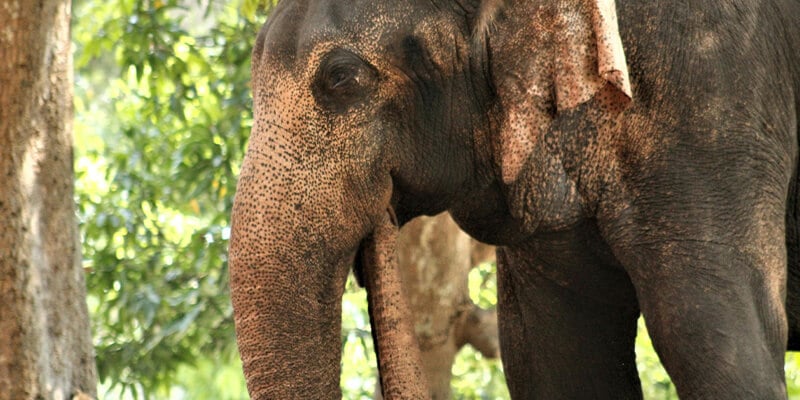Men Caught on Camera Throwing Flaming Tire Onto Elephant; See What PETA India is Doing
In India, a flaming tire was thrown at a bull elephant—setting him on fire and killing him—and two of the three men reportedly involved in the heinous act have been arrested. Orders have been issued to seal the resort belonging to the accused. The shocking incident was caught on camera and has many—including PETA India—calling for conducting education workshops on humane methods to protect crops and properties and to prevent human-elephant conflicts from leading to injuries or the death of humans or our fellow animals.
The act was an apparent attempt to turn the animal away from a resort area. The video above shows the burning rubber sticking to the elephant, lighting him on fire, and causing him to trumpet loudly in distress and run away. Forest department officials found the animal—badly injured and bleeding from his ears—but he died before reaching a local treatment facility. Authorities identified the three alleged perpetrators—one is reportedly missing, but the two others have been arrested.
Humans invaded this elephant’s home.
In response to the attack, PETA India has called not just for justice but for public education, too. PETA India CEO Dr Manilal Valliyate said, “We urge the forest department to hold education workshops with locals on humane methods of crop protection and to inform them that they must call for help and that residents must not take matters involving wild animals into their own hands.”
This is not the first time an elephant was killed with fire or firecrackers. Less than a year ago, a pregnant elephant was killed after being purposefully fed a pineapple stuffed with explosives. The image of the elephant went viral, rightly sparking international outrage.
Pregnant elephant’s death acts as a reminder that all elephants need help.
Take action with us to help them.
— PETA India (@PetaIndia) June 5, 2020
Other elephants have been killed, too, after crude bombs exploded or firecrackers were set off, often in attempts to drive the animals away from crops or human habitats. However, there are various humane ways to protect property and humans, including by using fencing or noisemakers or—in the case of elephants—planting chili peppers along perimeters. Officials must also work to protect elephants in other ways, too, including by preserving their natural forest homes as well as by banning circuses or rides that force elephants to perform.
Elephants, Like All Animals, Are Here With Us
Elephants are highly social animals who form strong, lasting bonds with their family members. They work together to solve problems and rely on the wisdom, judgment, and experience of their eldest relatives. When left in peace in their natural homes, elephants spend their days socialising, swimming, browsing, and playing. Just like all individuals, they want and deserve to be free, which is why we’ve made it easy to take quick, effective action for them—click below to help elephants in India:








